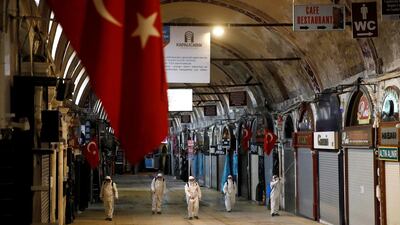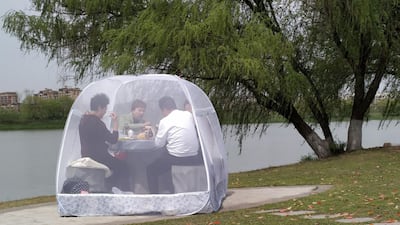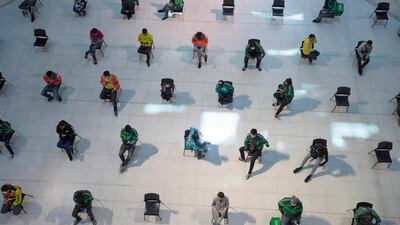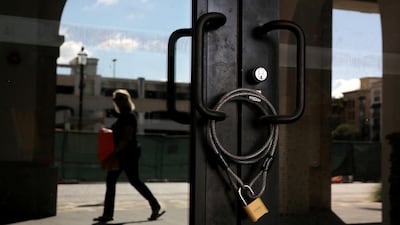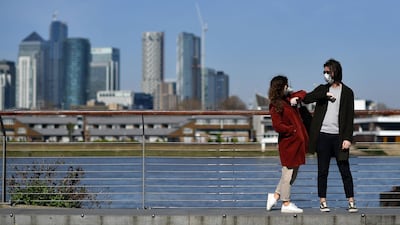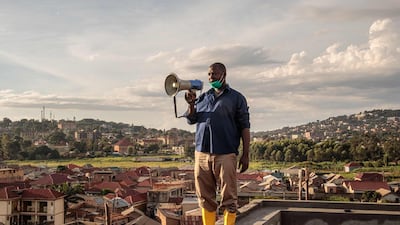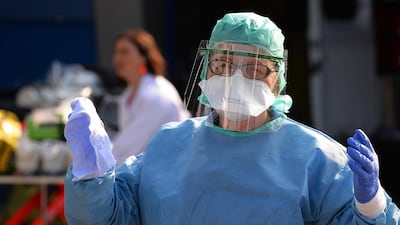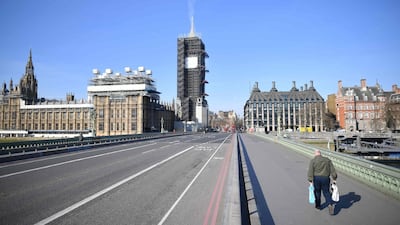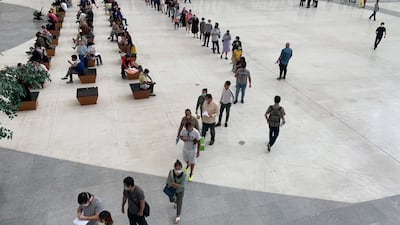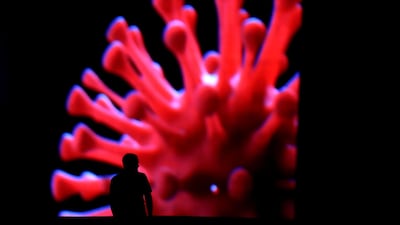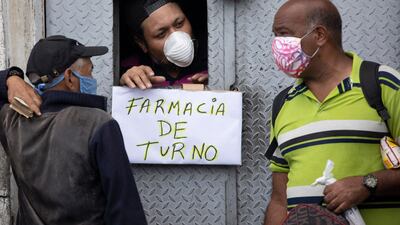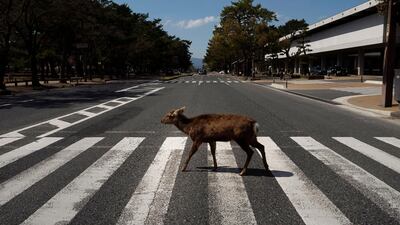While Turkey fights to contain the deadly coronavirus outbreak, one of its most qualified scientists is forced to sit on the sidelines, reduced to offering his expert opinion on social media.
Mustafa Ulasli, who spent more than a decade researching the virus, was among thousands of academics purged from their jobs in the wake of a failed coup in 2016. The case against him was dropped the following year.
Despite repeated pleas to the Health Ministry, Dr Ulasli remains out of work and unable to use his experience to help Turkey as it faces a rising number of infections, with an additional 925 cases and 23 deaths since late Saturday.
"When I started to hear about coronavirus cases in Turkey, I wanted to contribute something," he told The National.
“I have a PhD in this field and I’m ready to make any kind of contribution. I don’t want to make any political point. The urgent matter is the pandemic. The important thing is we have to act and I just want to contribute.”
Dr Ulasli began researching coronaviruses in 2007, when he started his PhD on the molecular behaviour of the virus group at Utrecht University in the Netherlands. He previous studied at Princeton University in the US.
Despite his expertise – he modestly describes himself as “probably” the most knowledgeable person on coronavirus in Turkey – the only contribution Dr Ulasli has been able to make is to post advice and information to his 46,000 Twitter followers as Turkey faced 44 deaths and 1,872 cases by Tuesday afternoon.
“If I keep this information to myself that’s not an honourable attitude,” he said. “I want to share my knowledge for the benefit of Turkey and the world.”
Dr Ulasli returned to Turkey after completing his research at Utrecht in 2011, taking up a post at Gaziantep University as a medical geneticist. “I had the opportunity to stay in the Netherlands or America, to apply for citizenship, but I returned to help my country,” he said.
In July 2016, a group of military officers linked to the Gulenist movement mounted a coup attempt. In the backlash that followed, Dr Ulasli, who had graduated from a Gulenist-linked university in 2002, was among thousands summarily dismissed from their jobs under a state of emergency decree.
To date, the crackdown has seen some 80,000 people jailed and 150,000 civil servants, academics, military personnel, judicial officials and police lose their jobs. Critics say the government has used the coup plot as a smokescreen for a wider attack on opponents.
Although he was cleared of any Gulenist involvement and has launched legal action to get his job back, Dr Ulasli remains out of work.
He has collaborated with colleagues in the Netherlands to continue publishing coronavirus research – their latest paper was released in November – but he is frustrated at the lack of opportunity to put his expertise to greater use as the world faces a deadly pandemic.
“I tried to contact the minister’s press adviser to say I would like to contribute in any way and gave them my phone number but I’ve had no contact,” he said. “I’m just sitting at home. If someone wants any help, I’m ready to do anything without any fee as a volunteer.”
He added: “If they gave me the opportunity, I would be able to work with a team developing tests to extend the diagnostic approach.”
Since the outbreak, his case has been taken up by opposition MP Omer Faruk Gergerlioglu, who has called on Health Minister Fahrettin Koca to reinstate Dr Ulasli and 15,000 other health workers who could help with research and treatment.
Dr Gergerlioglu, who was himself sacked by decree before his election in 2018, said he spoke to the minister about Dr Ulasli and was told the government would contact him on Monday. However, Dr Ulasli still has not had any official response.
“I reminded him that Dr Mustafa Ulasli’s unproductive situation is one of thousands of health workers who have waited for months to offer a necessary service,” Dr Gergerlioglu said.
